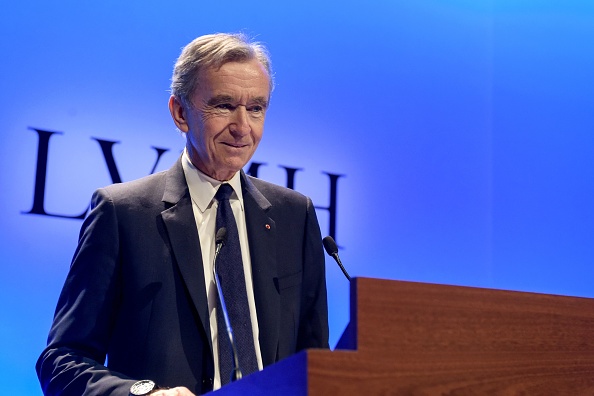One of the world’s ultimate taste-makers, Bernard Arnault entered an ultra-rarefied club this week. As of Thursday June 20, he was worth just over $100 billion, making him one of three people in the world with 12-figure fortunes.
He joins Amazon’s founder Jeff Bezos, worth an estimated $157.5 billion, and Microsoft cofounder Bill Gates, worth an estimated $103.1 billion. Bezos, who first passed $100 billion in 2017, will soon give a slice of that fortune away.
READ MORE | Hip-Hop’s Next Billionaires: Richest Rappers 2019
He and his wife, MacKenzie, are in the process of finalizing their divorce. The couple announced in early April that she will receive a quarter of his Amazon stake, currently valued at more than $37 billion. Gates reached $100 billion in April, thanks to strong earnings from Microsoft.
Arnault’s luxury goods group, LVMH Moët Hennessy–Louis Vuitton, has been having a great year. In April, it announced record first quarter sales and profits on top of a strong 2018. Its shares are up more than 40% so far in 2019, boosting Arnault’s fortune by more than $20 billion.With his family, he owns 46% of LVMH and serves as both its chairman and CEO.
The growth comes as high-end buyers around the world continue to pick up luxury goods and spirits, despite fears that demand, particularly in China, would slow down. Thirty-five years after Arnault first got into luxury goods with the purchase of Christian Dior, he continues to refresh LVMH by finding ways to appeal to a new generation of customers while retaining the traditional values and high quality that have defined its brands.
That includes innovative partnerships like the two with Rihanna — Fenty Beauty and Fenty fashion house — as well as recent deals such as the acquisition of Belmond, which operates luxury hotels, trains and even safaris.
“People do not understand that success stems from the cohabitation of two contradictory spirits: the artist’s vision and the logic of worldwide marketing,” Arnault told Forbes in 1997. “It’s a very complex process.”
Forbes first wrote about Arnault in 1991 when he was worth $200 million. He has since been featured several times and has appeared on our cover. He made his debut in our Billionaires ranks in 1997. Some readers may know his story well but it’s one worth retelling.
READ MORE | Jeff Bezos To Give MacKenzie 25% Of His Amazon Stake, Worth Tens Of Billions, In Divorce
A native of France’s cold, flat industrial north, Arnault was a star student at France’s prestigious Ecole Polytechnique. The son of a construction tycoon, Arnault spent three years in the U.S. in the early 1980s trying to establish a branch of his family’s real estate business, Ferinel, as a developer of Florida vacation properties.
After three years he returned home. But he learned a valued lesson in America, according to a 1997 Forbes profile on Arnault. Before leaving, he sold his Mediterranean-style home facing Long Island Sound in New Rochelle, N.Y. to American tycoon John Kluge, owner of the mansion next door. Kluge tore it down because it blocked his view.
“It was just incredible!” Arnault told Forbes. “It was a very nice place, but two days after he bought it, he tore my house down! It’s so very…American.” Lesson learned: “When something has to be done,” says Arnault, “do it! In France we are full of good ideas, but we rarely put them into practice.”
He returned back to France ready to make some moves. In 1984, Arnault put up $15 million of his family’s money to rescue bankrupt textile empire Boussac (Lazard put up the rest). Among Boussac’s mixed bag assets was money-losing fashion house Christian Dior.
That became the first of many Arnault acquisitions and the cornerstone of his massive luxury goods empire. Over the years, LVMH snapped up such brands such as Louis Vuitton, Givenchy and Sephora. Today LVMH has nearly $53 billion in sales from 70 brands and 4,590 retail stores.
-Luisa Kroll; Forbes Staff
